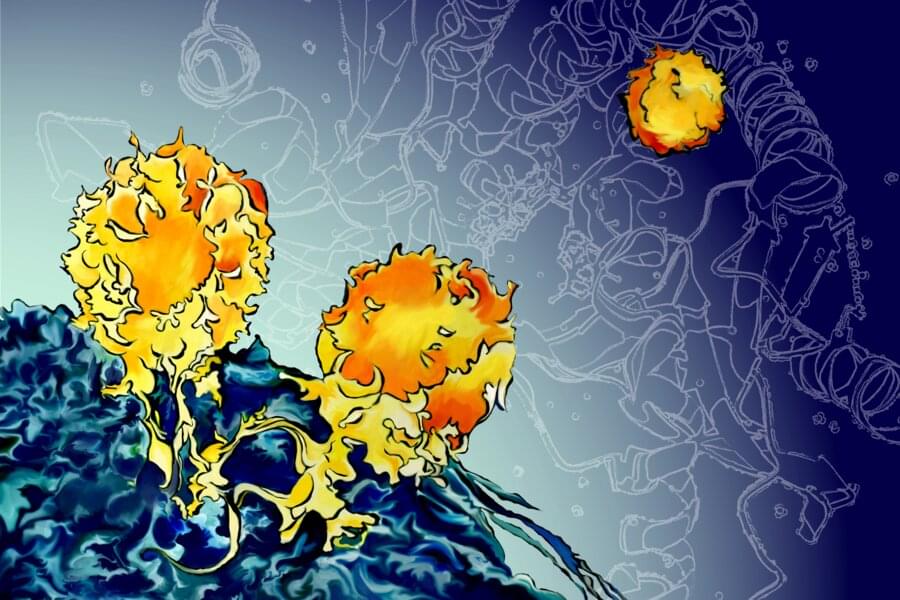Immune checkpoint blockade therapies have been revolutionary in the treatment of some cancer types, emerging as one of the most promising treatments for diseases such as melanoma, colon cancer and non-small cell lung cancer.
While in some cases checkpoint blockade therapies elicit a strong immune response that clears tumors, checkpoint inhibitors do not work for all tumor types or all patients. Moreover, some patients who do experience an initial benefit from these therapies see their cancers recur. Only a small minority of patients treated with checkpoint blockade therapies see lasting benefits. Researchers have developed various combination therapy strategies to overcome resistance to checkpoint blockade therapies, with the STING pathway emerging as one of the most attractive lines of inquiry.
In a study published in Advanced Healthcare Materials, a team of MIT researchers engineered a therapeutic cancer vaccine capable of restoring STING signaling and eliminating the majority of tumors in mouse models of colon cancer and melanoma, with minimal side effects. The vaccine also inhibited metastasis in a breast cancer mouse model and prevented the recurrence of tumors in cured mice.









Comments are closed.